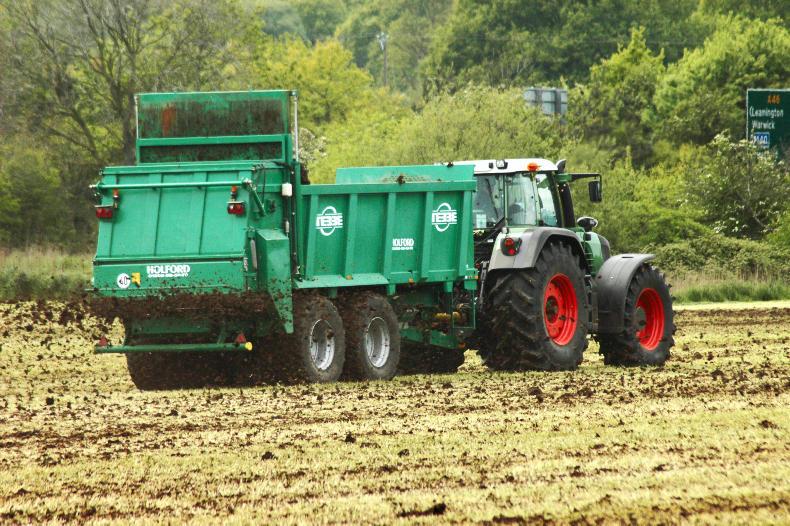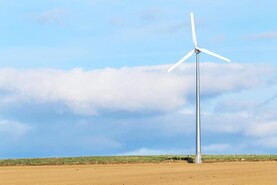Farmers and food businesses will be able to connect, trade and sell agri-waste on a new online platform called Agrocycle.
This free platform allows agri-waste producers such as farmers or food businesses to connect, trade and sell agri-waste with users across Europe.
Dr Tom Curran, assistant professor in biosystems and food engineering at UCD, leads the project and told Newstalk Business on Thursday morning that the "tinder for agri-waste" title for the website came from the idea that one man’s trash is another man’s treasure.
“So we’re trying to connect people who are producing waste with those who might use it. There are various examples of that throughout agriculture and the food industry, such as manure, poultry manure – it needs to find a home. It’s a good fertiliser and that can be spread on tillage land, for example.
We’re trying to connect people who are producing waste with those who might use it
“We hear a lot about the problems of greenhouse gases and climate change. Even in the last few days, we’re hearing reports coming out from Government and Teagasc in relation to our climate action plan. One technology that can be used in that area, especially with agri-food waste is anaerobic digestion – basically a digestion process that uses microbes to process agri-food waste and generate bio-gas which can then be processed into electricity for heating also.
“It can even be injected into the national gas grid and it could be used even for transport purposes,” he said.
Single-use plastics
Dr Curran also highlighted that with the European Parliament bringing in a ban on single-use plastics, such as drinking straws, Agrocycle and its partners have come up with inventions which could see plastic drinking straws replaced with edible straws.
“In this case [we use] rice bran, what’s left over after you take out the edible part of rice, and we’ve made products such as these edible drinking straws,” he said. They’ve also made drinking cups made from potato pulp.
Brexit
When it comes to Breixt, Dr Curran said that there are sectors in Ireland which are vulnerable in terms of Brexit; mushrooms – for example.
“About 10% of the mushrooms that are harvested in a mushroom tunnel, they go to waste. Some of them go to landfill, so one of my colleagues in UCD has done research to show that by feeding pigs mushrooms it has a major health benefit and can reduce antibiotic use.
“So with our Agrocycle marketplace, we can connect mushroom producers with local pig farmers,” he said.
Read more
New guidelines may challenge use of poultry litter
Increase in AD plants using waste products
Farmers and food businesses will be able to connect, trade and sell agri-waste on a new online platform called Agrocycle.
This free platform allows agri-waste producers such as farmers or food businesses to connect, trade and sell agri-waste with users across Europe.
Dr Tom Curran, assistant professor in biosystems and food engineering at UCD, leads the project and told Newstalk Business on Thursday morning that the "tinder for agri-waste" title for the website came from the idea that one man’s trash is another man’s treasure.
“So we’re trying to connect people who are producing waste with those who might use it. There are various examples of that throughout agriculture and the food industry, such as manure, poultry manure – it needs to find a home. It’s a good fertiliser and that can be spread on tillage land, for example.
We’re trying to connect people who are producing waste with those who might use it
“We hear a lot about the problems of greenhouse gases and climate change. Even in the last few days, we’re hearing reports coming out from Government and Teagasc in relation to our climate action plan. One technology that can be used in that area, especially with agri-food waste is anaerobic digestion – basically a digestion process that uses microbes to process agri-food waste and generate bio-gas which can then be processed into electricity for heating also.
“It can even be injected into the national gas grid and it could be used even for transport purposes,” he said.
Single-use plastics
Dr Curran also highlighted that with the European Parliament bringing in a ban on single-use plastics, such as drinking straws, Agrocycle and its partners have come up with inventions which could see plastic drinking straws replaced with edible straws.
“In this case [we use] rice bran, what’s left over after you take out the edible part of rice, and we’ve made products such as these edible drinking straws,” he said. They’ve also made drinking cups made from potato pulp.
Brexit
When it comes to Breixt, Dr Curran said that there are sectors in Ireland which are vulnerable in terms of Brexit; mushrooms – for example.
“About 10% of the mushrooms that are harvested in a mushroom tunnel, they go to waste. Some of them go to landfill, so one of my colleagues in UCD has done research to show that by feeding pigs mushrooms it has a major health benefit and can reduce antibiotic use.
“So with our Agrocycle marketplace, we can connect mushroom producers with local pig farmers,” he said.
Read more
New guidelines may challenge use of poultry litter
Increase in AD plants using waste products






 This is a subscriber-only article
This is a subscriber-only article










SHARING OPTIONS: